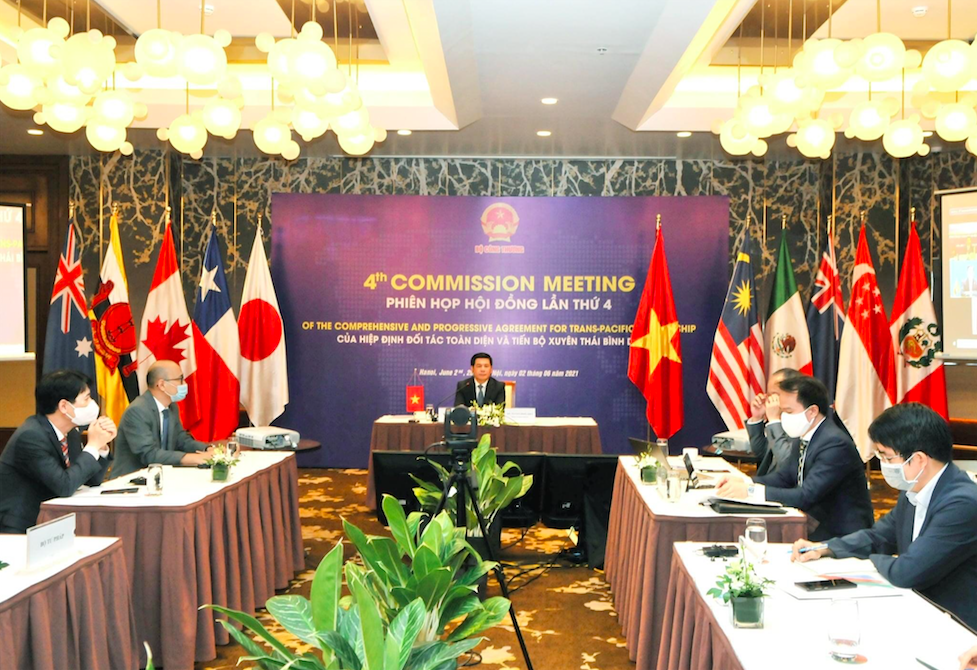Negotiations on CPTPP membership application of UK begins
The opening of the negotiations with the UK would send a message on commitments of CPTPP members in supporting the establishment of fair, efficient and comprehensive international trade practice.
Member countries of the Comprehensive and Progressive Agreement for Trans-Pacific Partnership (CPTPP) welcome the UK’s application to join the deal and would start negotiations on the issue.
| Overview of the meeting from Hanoi. Photo: Phan Trang |
The move was revealed in the 4th Commission Meeting of the CPTPP with the participation of economic ministers from 11 country members on June 2 under virtual format to discuss UK accession requests.
Ministers noted the start of the negotiations with the UK would send a key message on commitments of CPTPP members in supporting the establishment of fair, efficient, and comprehensive international trade practice that is based on law.
The negotiation process, meanwhile, is an opportunity to promote high-level standards of the CPTPP for trade activities in the 21st century, as well as contributing to the recovery and promotion of trade in Asia-Pacific and all over the world amid serious economic impacts from the Covid-19 pandemic.
However, ministers stressed the negotiation process would only be the first step, while CPTPP countries would cooperate with the UK in maintaining the deal’s high standards and its leading role in strengthening regional and international linkages.
On the same day, the UK government released a statement saying that the country will continue to work closely with Japan, as chair of the CPTPP commission this year, alongside the other CPTPP nations to step up negotiations.
“CPTTP membership is a huge opportunity for the UK. It will help shift our economic center of gravity away from Europe towards faster-growing parts of the world, and deepen our access to massive consumer markets in the Asia-Pacific,” said UK International Trade Secretary Liz Truss.
“We would get all the benefits of joining a high-standards free trade area, but without having to cede control of our borders, money and laws,” she noted.
CPTPP is a trade agreement between 11 countries (Australia, Brunei, Canada, Chile, Japan, Malaysia, Mexico, New Zealand, Peru, Singapore and Vietnam), covering 500 million people and making up 13% of global economic output.
CPTPP countries accounted for £110 billion-worth of UK trade in 2019 and its rules remove tariffs on 95% of goods traded between members.
Joining CPTPP is set to deepen UK access to fast-growing markets and projected major economies of the future, including Mexico, Malaysia and Vietnam.
Vietnam was the seventh member country of the CPTPP officially ratifying the 11-nation deal in November 12, 2018.
Free trade agreements, including the CPTPP and EVFTA, have contributed a major part to Vietnam’s economic recovery during the Covid-19 pandemic. Hanoi, the capital city of Vietnam, saw its export turnover in the first five months rising by 8.1%% year-on-year to US$5.9 billion despite the pandemic, while imports surged by 20.7% to US$13.6 billion. |













